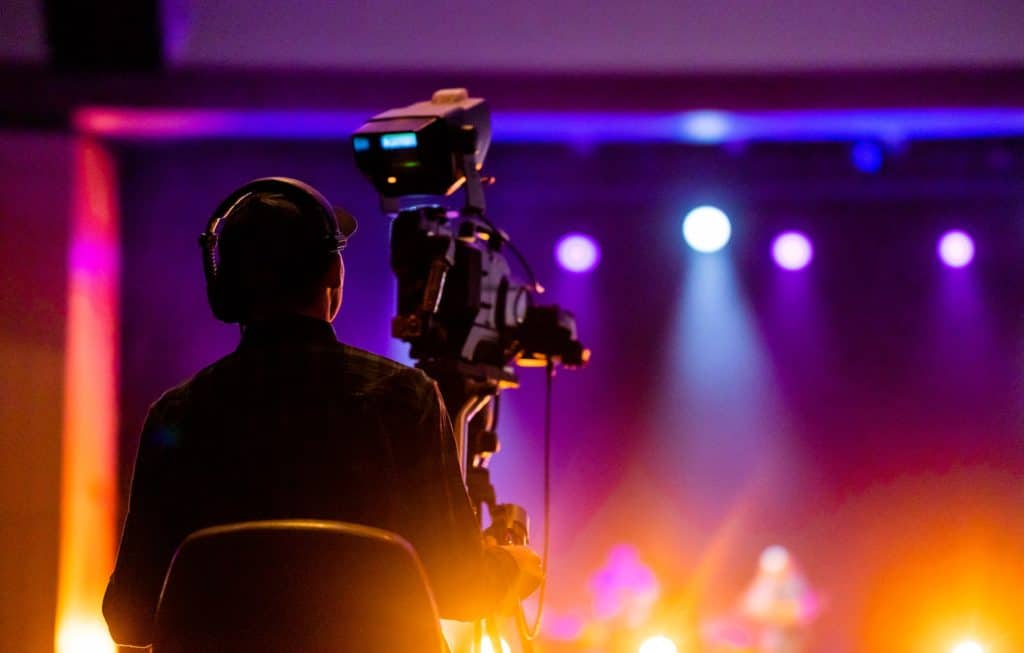Production defines the success of any event. Now, to ensure that the production process runs smoothly and that everything is on schedule, you will need a production management company. So, why is event production management important? Should you hire a production company? We provide all the answers in this straightforward guide.
Why Is Event Production Management Important?
Event production management is important because it ensures that every aspect of the production process runs smoothly and according to plan. The main goal of production management is to see to it that producers and other crew members involved in production understand what they are supposed to do and do it well.
To achieve this, you will need a project manager. This is the person responsible for overseeing the production process from start to finish. Project managers work closely with the lead technician and pertinent teams to ensure that they treat attendees to the best event experience. So, do you need a production management company?
5 Reasons Why Event Production Management Is Important
Before we go any further, let’s make an important distinction. In particular, in order to fully understand what management is and why it is important, we first need to understand what event production is.
In a nutshell, production is the execution of an event using audio/visual media such as sound, video, design, and lighting to control the atmosphere and mood of the event. Production management is important because:
- It ensures that you get the latest technology and the best audio/visual setup for your event
- It helps you draft a production budget
- It ensures that the different production teams work holistically
- It helps you create a flexible production schedule
- It makes it easier to schedule performers and speakers
Helps Get the Best Vendors for Audio/Visual Equipment
Audio/visual equipment is at the epicenter of any successful production process. To ensure that you get the best and right equipment, the production manager coordinates with competent vendors and contractors. They’ll know who to hire, where to improvise, and what technology to utilize.
By doing this, the production manager helps you to stay within budget while also ensuring that you have access to the necessary A/V arsenal.
Helps Draft a Good Production Budget
Production is the most important aspect of any event. It is the culmination of hours of planning, venue preparation, vendor coordination, and so on. Therefore, it makes sense that a large portion of the budget would go toward production.
To ensure that the budget is both feasible and within the client’s capabilities, the production manager has to work with the overall event manager and planner. They may know what is needed for the production to be successful and which vendors to use.
Ensures That the Different Production Teams Work Holistically
One of the biggest benefits of production management is ensuring that there is a good synergy between the different production crews. By effectively managing the production team, you ensure that everyone is doing what they are required to do in the best way possible.
Normally, for a small event, the project manager can oversee the production crew. However, for a big corporate event, you may need a Technical Director as well.
Helps Create a Flexible Production Schedule
Event production is a complicated process. Without a good plan and schedule, it is easy to miss important pieces that can prevent you from delivering a good experience. While the event planner and overall manager can create a good schedule, the production team will need its own timeline in order to effectively execute the event technology.
The production manager is the most ideal person to create a production schedule that flows well with the overall event schedule while also providing a clear roadmap for the production crew.
Makes It Easier to Schedule Performers and Speakers
An event is only as good as the people who speak and perform in it. You might have the best speakers and entertainers in the industry. However, if the scheduling is clumsy and mixed up, it will be hard to deliver a memorable experience for your attendees.
A production manager can help you avoid this. They will help ensure that speakers and performers arrive at the event at the right time and are on stage when the time comes.
What to Look For in a Production Manager
As we have seen, production management is important to the success of any event. However, not every production manager out there will be able to pull off the best event. Generally, a good production manager should:
- Have good management skills since they will be overseeing the whole production process
- Be a good leader in order to effectively coordinate different crews in charge of the production process
- Be able to quickly solve problems. A lot of things could go wrong during production and the manager should be able to act swiftly and provide effective mitigation measures
- Be a good communicator so that they can ensure everyone understands what their roles are and how to accomplish them effectively
For the best production management, we recommend working with a production company like Vario. We have the right professionals to ensure that the production process at your event is fluid and fruitful. Check out our production solutions for more info.
Related Questions
What’s the Difference Between a Project Manager and a Technical Director in an Event?
The lead technician executes the concept of the event planner using audio/visual media while a project manager oversees the overall production process to ensure that all activities are directed towards the same goal.
Is an Event Production Manager the Same as an Event Manager?
An event production manager is specifically in charge of the production process. That is, ensuring that the producer and his production crew have the right resources, equipment, and information to do their work. The overall event manager, on the other hand, is in charge of overseeing every activity leading to, during, and after the event, including production.
Conclusion
There is no doubt that production management is crucial for any event. It ensures that the production schedule is followed, a good production budget is drafted, you have the right A/V equipment, work with the right vendors and effectively coordinate performers and speakers. For the best experience, we recommend working with a production company.







